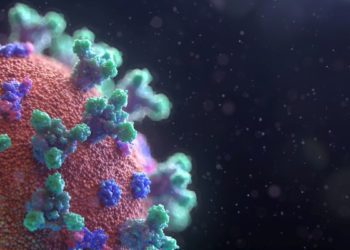Medical vaccine exemptions increase after elimination of nonmedical exemptions
1. After California eliminated nonmedical exemptions from school-entry vaccinations in 2015, the proportion of kindergarten students who received all required vaccines rose from 92.8% to 95.1%, but the rates of medical exemptions increased 250%.
2. Interviews with local health officers had common themes of frustration by lack of authority to approve or disapprove medical exemptions and concerns regarding physicians charging fees for medical exemptions.
Study Rundown: In 2015, California Senate Bill 227 eliminated nonmedical exemptions from school-entry vaccinations. Following this legislative change, while overall vaccination rates were noted to rise among kindergarten students, a 250% increase in rates of medical exemptions was also appreciated. In this qualitative study, researchers interviewed health officers and immunization staff representing local health jurisdictions in California about the roles of stakeholders, medical exemptions received by schools, and frustrations and concerns over medical exemptions. Themes that were commonly encountered included concerns regarding questionable contraindications for immunization, physicians charging fees for a medical exemption, and physicians who do not normally treat children endorsing medical exemptions. Health officials also expressed frustration regarding the lack of authority to approve or disapprove medical exemptions, and possible legal repercussions for actively tracking medical exemptions.
These findings are limited by recall and selection biases. Of note, the local health departments that participated in this study tended to be located in jurisdictions with higher median household incomes. Nonetheless, this work details in-depth interviews across a wide range of localities. For providers, these findings highlight important considerations when planning, implementing, and advocating for health policy to improve vaccination rates.
Click to read the study, published today in Pediatrics
Relevant reading: Change in Medical Exemptions From Immunization in California After Elimination of Personal Belief Exemptions
Study author, Salini Mohanty, DrPH, MPH, speaks to 2 Minute Medicine: University of Pennsylvania School of Nursing.
“During the first year of Senate Bill 277 implementation some physicians in California took advantage of the law to write medical exemptions for vaccine-hesitant parents by charging a fee in exchange for granting a medical exemption request.
California experienced two major immunization changes within a relatively short period of time and previous studies have shown that physicians often report not feeling confident or familiar with important health policy legislation. In our study we found that few local health departments were in communication with physicians in their jurisdiction regarding Senate Bill 277. Increased outreach to physicians from local health departments and professional organizations is needed when new legislation is introduced —especially when this legislation impacts how physicians practice medicine.”
In-Depth: Researchers conducted 34, semi-structured phone interviews with 40 health officers and immunization staff who represented 35 of the 61 local health jurisdictions in California in 2017. Thematic codes were developed using a priori codes informed by literature. Participating jurisdictions had slightly lower average kindergarten person belief exemptions (27% vs. 20%) and higher median household incomes.
Four major themes were identified: (1) the role of stakeholders, (2) reviewing medical exemptions received by schools, (3) medical exemptions that were perceived as problematic, and (4) frustrations and concerns over medical exemptions. The health officers outlined the roles of physicians, schools, local and state health departments, and the California Medical Board in overseeing exemptions. They discussed their methods for verifying and actively tracking medical exemptions; in some cases, local health jurisdictions faced lawsuits, hate mail, and threats when actively tracking exemptions, which deterred other jurisdictions. Problematic medical exemptions identified included physicians charging monetary fees for medical exemptions and exemptions being signed by non-MD/DO providers or physicians who do not normally see children in primary care (e.g. dermatologists, surgeons). Health officers also expressed frustration regarding lack of authority, burdens on school staff to manage exemptions, and increases in medical exemptions after California Senate Bill 227.
Image: PD
©2018 2 Minute Medicine, Inc. All rights reserved. No works may be reproduced without expressed written consent from 2 Minute Medicine, Inc. Inquire about licensing here. No article should be construed as medical advice and is not intended as such by the authors or by 2 Minute Medicine, Inc.







